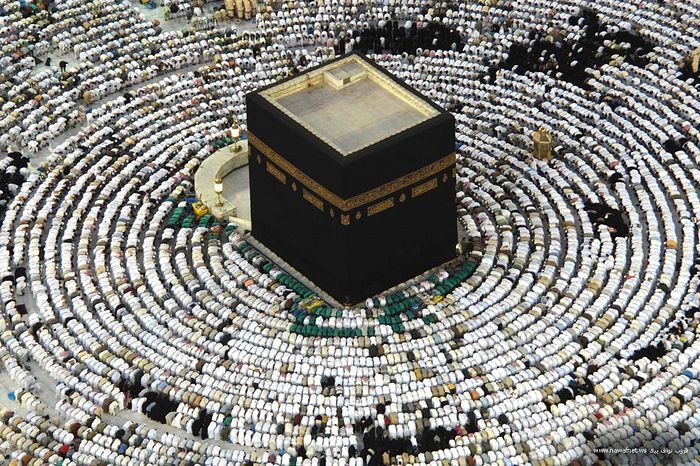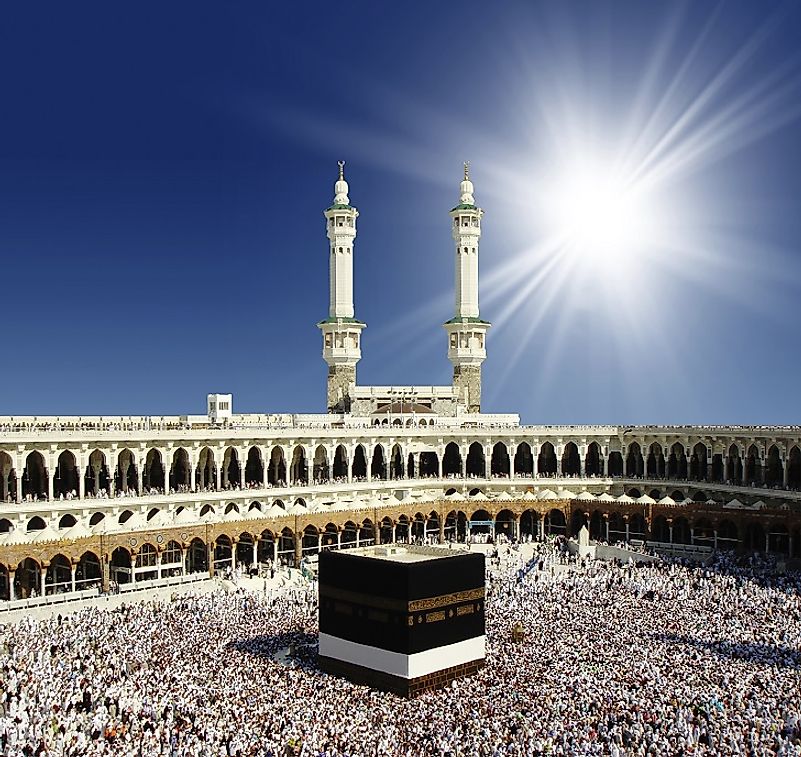Islamik factor
Islam
Definition Islam is one of the world’s religions that adhere to monotheism, that is, belief in one God. As for Christians, Islam for its adherents is much more than a religion.
Islam is: A way of life; Basis of family and legal relations; Collection of traditions and customs. Translated from Arabic, Islam means “submission.”
Islam is one of the world’s religions that adhere to monotheism, that is, belief in one God. As for Christians, Islam for its adherents is much more than a religion. Islam is:
Lifestyle
- Basis of family and legal relations;
- Collection of traditions and customs.
- Translated from Arabic, Islam means “submission.”
Basic principles, the essence of Islam
Islam is considered the youngest of the world’s religions. It originated in the southwest of the Arabian Peninsula at the beginning of the 7th century. in Hijaz among the tribes of Western Arabia.
Prophet Muhammad (570-632) became the founder of Islam. He created a community that formed the basis of the state system – the Arab Caliphate.
Among the principles of Islam is monotheism: “there is no deity but Allah, and Muhammad is the prophet of Allah.”
According to Islam, Allah transmitted the Koran to Muhammad through an angel, which became the holy scripture for Muslims.

The holy book of Muslims – the Quran consists of 114 chapters (suras). The suras are named according to the principle of the brightest phrase from the chapter, which has become an aphorism or the main theme of the sura.
Another source of doctrine is the Sunnah – stories about the life of Muhammad and his statements in the form of hadiths (tales).
The main articles of faith in Islam are:
- Faith in the Almighty
- Faith in the angels of the Most High
- Faith in God’s Scripture
- Faith in the Prophets and Messengers of the Almighty
- Belief in God’s predestination
- Faith in life after death
Pillars of Islam:
- reading the shahada (“there is no deity but Allah, and Muhammad is the prophet of Allah”);
- five obligatory prayers per day (“prayer”), performed in Arabic in compliance with a strictly defined rite;
- observing fasts during the month of Ramadan, when Muslims are required to abstain from any food and drink from sunrise to sunset;
- pilgrimage (“hajj”) to Mecca at least once in a Muslim’s life;
- donations to the needy and for the needs of the community (“zakat”).
Currents of Islam
Islam is divided into two main streams:
- Sunnis
- Shiites
The vast majority of Muslims are Sunnis. Sunnis adhere to the set of hadiths adopted by them, religious practice and the rules of conduct for a Muslim in all life situations, calling this set sunnah.
This is not just a custom, but a life principle on the basis of which the whole life of a person who professes Islam is built.
The Shiites, in turn, believe that power in the community should belong only to the descendants of the Prophet Muhammad (that is, the children of Fatima, his daughter, and Ali, his cousin), and not to those who are chosen, as is the case with the Sunnis.
They do not accept the sunnah unconditionally and supplement it with the instructions of the imams, who are considered mediators between man and Allah.
Islam and Orthodoxy
Despite the fact that Islam, like Christianity, is a monotheistic religion, we cannot say that we believe in one God, because God is not impersonal. Jesus in Islam is considered only a prophet, but not God.
Islam refers Christians to the “People of the Book” and does not deny the identity of Jesus, but in Islam the Savior is only a prophet of Allah.
The building for the collective prayers of Muslims is called a mosque; Tower-minarets are attached to the mosque as an outbuilding.
According to Sharia, for Muslim prayer, including collective, any room can be used, except for baths and toilets. In Christianity, the temple is the center of worship, the Sacraments, religious marriages are performed there.
Marriage and funeral rituals are traditionally performed outside the mosque in Islam.
Islam places a lot of emphasis on the fulfillment of traditions and external ordinances, Christianity adheres to several other principles that can be described as “not a man for the Sabbath, but the Sabbath for the man.”
The theology of the Qur’an also differs significantly from that of the Bible.
According to the teachings of Islam, the soul of the deceased exists in a corpse, where sinners are tormented by angels, and the righteous are at peace.

Dialogue between Islam and Orthodoxy is possible, but when doing missionary work, it is important not to forget that the Lord did not call anyone to take His side with violence or violent disputes, and, apart from the gift of persuasion and an example of a righteous, worthy life, prayers, we have no other weapon.
Translated from Arabic, Islam means “giving oneself to God”, and a Muslim is a person “devoted to God”. Just like Jews and Christians, Muslims are monotheists.
They believe that there is only one and only God who created the world and everything that fills it. God in Arabic is Allah. The Arabic-speaking Christians also call God the same.
At the same time, according to the Muslim tradition, God has as many as 99 names – here are just some of them: Gracious, Merciful, King, Holy, Peaceful, Faithful, Guardian, Great, Mighty, Exalted, Creator, Creator, Educator, Wise.
Muslims believe in angels and demons that God created before man, in prophets, most of whom are identified with biblical characters (Ibrahim – Abraham, Musa – Moses and even Isa – Jesus Christ), and also, like Jews and Christians, they expect the coming of the Messiah (Mahdi) at the end of time.
Islam is the world’s fastest growing religion, with more than 1.5 billion followers in the world today.
How Muslims view other religions
In the Muslim tradition, all people are divided into true believers (Muslims), people of the Book, who cannot be forcibly converted to Islam, and polytheists, who must be converted to Islam.
Jews and Christians were originally attributed to the people of the Scripture, since Revelation was also given to them (however, over time they distorted it).
Later, during the Islamic conquests, the Mandaeans, Zoroastrians, Hindus, Buddhists, Sikhs, and others also received the status of dhimmis (Arabic for “protected”).
The Muslim government allowed dhimmis to freely practice their faith, subject to paying a special tax and maintaining loyalty to Muslims.
Over time, the list of duties of dhimmis expanded: they were ordered to wear distinctive clothes, it was forbidden to breed pigs, arrange noisy religious processions, etc.
Some prohibitions could be temporary – introduced and canceled in different territories. At present, in most Muslim states, representatives of different religions are equal before the law.
